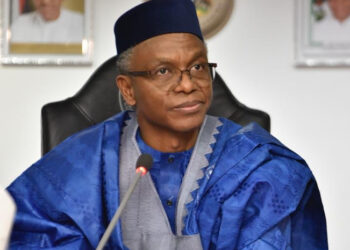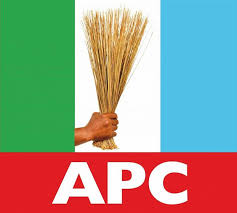Dissension following outcome of any electoral exercise in Nigeria has become almost a norm. However, current reactions trailing the recently concluded political parties’ primaries in the build up to the fast approaching 2019 general elections appeared to many as unique. Joshua Egbodo looks at the issues
Burden of election expenses
There have been alarms in the past on alleged high expenditure in the nation’s electoral processes, especially as it relates to aspiration to public offices. So in reality, it was nothing new when the allegations again surfaced after the primaries were won and lost.
The usual experience in the past has been of massive movement of members of political parties to other platforms, and this happens more in a pre-election period, when aggrieved members who in their expectations, failed to get tickets for the offices they sought to occupy.
House probes parties’ electoral expenses
A new twist was, however, added to such dissents last week, when the House of Representatives, passed a resolution to raise an Ad hoc panel to investigate expenditures of the major political parties for primary elections in the last four years. The committee was also given the mandate to ascertain the level of breach of the 2010 Electoral Act by the parties, which in this case may not be limited to financial spending.
It said the investigation will identify defects in the Electoral Act, with a view to correcting them, as well as bring out possible ways of strengthening the electoral process more.
The House in the resolution also accused the Independent National Electoral Commission (INEC) of possible “collusion”, for looking the other way while the alleged infractions last.
The committee, under the chairmanship of Hon. Bashir Babale has also been mandated to ascertain the income and expenditure of major political parties in the last four years, to determine whether they were in compliance with Section 226 of the 1999 Constitution of Nigeria.
An aggrieved member, Hon. Abubakar Chika, who had repeatedly blamed himself for dabbling into politics, which he said had affected his personal reputation in Nigeria, and so would not seek a return ticket to the House, in a motion following which the resolution came, lamented that there have been growing lack of internal democracy in political parties as demonstrated by outcomes of the recently concluded primary elections, saying there was widespread impunity during the process.
Though the lawmaker, who fell short of naming the widely reported allegation of bribe collection by National Chairman of his party, the All Progressives Congress (APC), Comrade Adams Oshiomhole, said people were frustrated from democratically participating in the primaries across the nation.
INEC compromised?
However, the lawmaker noted that in spite of the regulatory requirement that the INEC supervises all congresses of political parties, it was worrisome that there were “reports of widespread irregularities that greeted the congresses of parties held between September and first week of October, 2018”.
He said many of the political parties failed to comply with both provisions of their own constitutions, and the Electoral Act. “Some of the political parties brazenly refused to hold primaries in contravention of section 87(10) of the Electoral Act, which makes it mandatory for parties to hold primaries”, he said.
While calling for the adoption of legislative measures to address the lack of internal democracy in political parties, Chika noted that governors in many states interfered in the elections through imposition of their stooges as candidates, and some cases, prevent aspirants from participating in the primaries.
The motion, which enjoyed several supporting contributions from other members, was passed unanimously by voice votes of members of the House without a single negative vote, when Speaker Yakubu Dogara , a signal many said suggested a lot of dissent across the political parties over outcomes of the primaries.
CSO insists on APC, PDP probe
While questions where being asked on what the House’s probe would amount to, especially that outcome of the investigation may end up with simple
recommendations, which the implementing authorities may choose to ignore, the move got a seeming boost over the weekend with a civil society body asking the nation’s leading anti-graft agencies to specifically investigate the two leading political parties over allegations of corruption during the primaries.
The Socio-Economic Rights and Accountability Project (SERAP) in a reported “urgent petition” to the Economic and Financial Crimes Commission (EFCC), and the Independent Corrupt Practices and Other Related Offences Commission (ICPC) requested the agencies to “jointly investigate allegations of corruption during the recent primaries by both the All Progressives Congress (APC) and the Peoples Democratic Party (PDP), and to collaborate with the Presidential Advisory Committee Against Corruption (PACAC) in any such investigation”.
SERAP also urged the EFCC and ICPC to “widely publish the outcome of any investigation carried out, and if there is relevant and sufficient admissible evidence, to bring to justice anyone involved”.
The body said since both parties have accused each other of corrupt practices during the primaries, it was time an investigation is launched to ascertain the truth, as it expressed “serious concern that if true, the allegations that officials of leading political parties engaged in corrupt acts would weaken public confidence in the electoral and democratic process, and send a damaging message that public offices are for sale, and that politicians are interested in public offices only for themselves and not for the common good”, as worrisome development.
These new moves have pose questions on the expected credibility of the 2019 general elections, with pundits calling for caution on the parts of political parties, supporters and their candidates. The recent cases of vote buying in Ekiti and Osun States were readily cited, as they argued that if anything, the government of the day should rather help in improving on the 2015 experience, which saw the world commending the nation’s electoral reforms progress.



